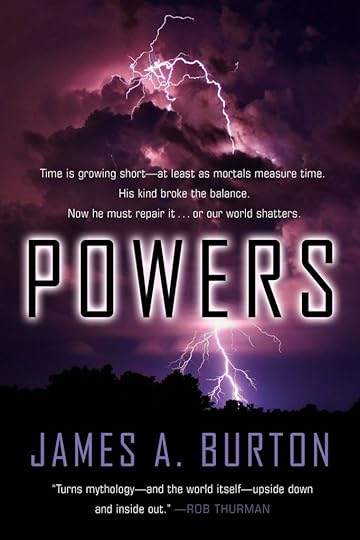High, Low, and Middle Fantasy
Okay, so, “high” and “low” fantasy came up here fairly recently. I said my tendency was to define high fantasy as epic or heroic fantasy that also has a more poetic or formal tone; low as non-heroic fantasy that has a grittier or more casual tone.
However, the terms are also, perhaps more commonly, used this way:
High fantasy = secondary world
Low fantasy = contemporary world.
I think that’s an odd usage, as it seems sensible to me to say “secondary world fantasy” if that’s what you mean and then divide secondary world fantasy into high and low; ditto for contemporary fantasy. But fine, either way, this post at Book Riot caught my eye:
MIDDLE FANTASY: A SUB-GENRE FOR ALL FANTASY LOVERS
Okay, I said, what do YOU mean by “middle fantasy?” It’s certainly true that if you have high and low, then you should have middle! Do you mean, um, halfway between secondary and contemporary worlds? Because that would actually sort of be interesting! The Death of the Necromancer might fit, as the world is secondary BUT highly reminiscent of gaslamp London. I’m sure it would be possible to think of plenty more examples like that.
OR, do you mean the novel strikes a tone that is midway between the poetic or elevated or formal tone of high fantasy and the everyday or gritty tone of low fantasy? That could be … lots and lots of books, I guess, including some that reach for a high fantasy tone but don’t quite make it.
So let’s see what this Book Riot Post has in mind — one of those options or something else:
The term “high fantasy” has only been around since the 1970s and describes books that are set in a fictional alternative world (think Middle-earth). Literarily, the term was used to differentiate between real-world and alternative fantasy world …
Okay! So that’s clear. High fantasy means secondary world, low fantasy then presumably means contemporary world. … Yes, that’s the starting point for this post.
Okay, then, what’s middle fantasy? ???
Without reading further, here are some options that occur to me:
a) Portal fantasy, that starts off in the contemporary world but then the protagonist(s) go to a secondary world. We don’t really need a special term for that, as “portal fantasy” is well understood.
b) The world started out as our contemporary world or as our historical world, but WOW is it different now because something dramatic happened. There are lots of examples and have been practically forever. I’m thinking of Ariel by Boyett. The Kate Daniels series by Ilona Andrews also fits this type.
c) The world has some contemporary elements, but the fantasy elements are big and dramatic and always have been in the history of this world. A whole lot of paranormal and UF fantasy falls into this category, including, oh, say, the Others series by Anne Bishop. So do lots of other novels, such as, hmm, well, Thirteenth Child by Patricia Wrede, say. Zillions of examples, some historical and some contemporary in flavor, but all with lots of important fantasy elements that thoroughly shift the world away from the real world.
d) Something else.
Let’s see how Book Riot defines middle fantasy …
In middle fantasy, the rules are bent, known mythologies and folklores are explored, and magic abounds!
Okay, so (d) then! I hadn’t thought of this option — lots of magic, but it draws on actual mythology and folklore. A perfectly fair conception for the term! Not quite real, known world, but real, known mythology. What have I been calling that kind of fantasy all this time … probably “mythological fantasy,” if I used a term. Not sure I did. That’s probably the term I would choose, rather than “middle fantasy,” because here I’ve come up with three other possible ways to define a chunk of middle ground between high and low fantasy. Given a choice, I prefer descriptive terms that are harder to misunderstand or define in confusing ways. But the category itself seems fair to me.
Let’s see what specific works Book Riot chose to exemplify the category:
Wow, not a single title that I’ve read. In some cases, the book doesn’t really appear to fit the category — a category they just defined! Come ON, this is not a difficult category at all. I believe the post is trying much too hard to stick to very recent titles and also perhaps to titles that echo current events. I’d rather stick to the topic of the post and pick titles that actually exemplify the category.
And to exemplify the category, well, I thought immediately of the Percy Jackson novels. I only read the first one — it was a bit young for me — but it’s a very obvious example.
There are surely lots of others. Let me see. American Gods, obviously. Hounded, by Kevin Hearne.
My actual favorite is the Powers and Dominions duology but Burton/Hetley. Here’s my post about Powers. I should re-read those.

What titles would you put on this kind of list?
Middle Fantasy; eg, contemporary fantasy that draws heavily on mythology or folklore, but is not a retelling:
American GodsHoundedPercy Jackson stories by Rick RiordanPowers and DominionsAgent of Hel series by Jacqueline Carey…. What else?
Please Feel Free to Share:






 [image error]
[image error]



